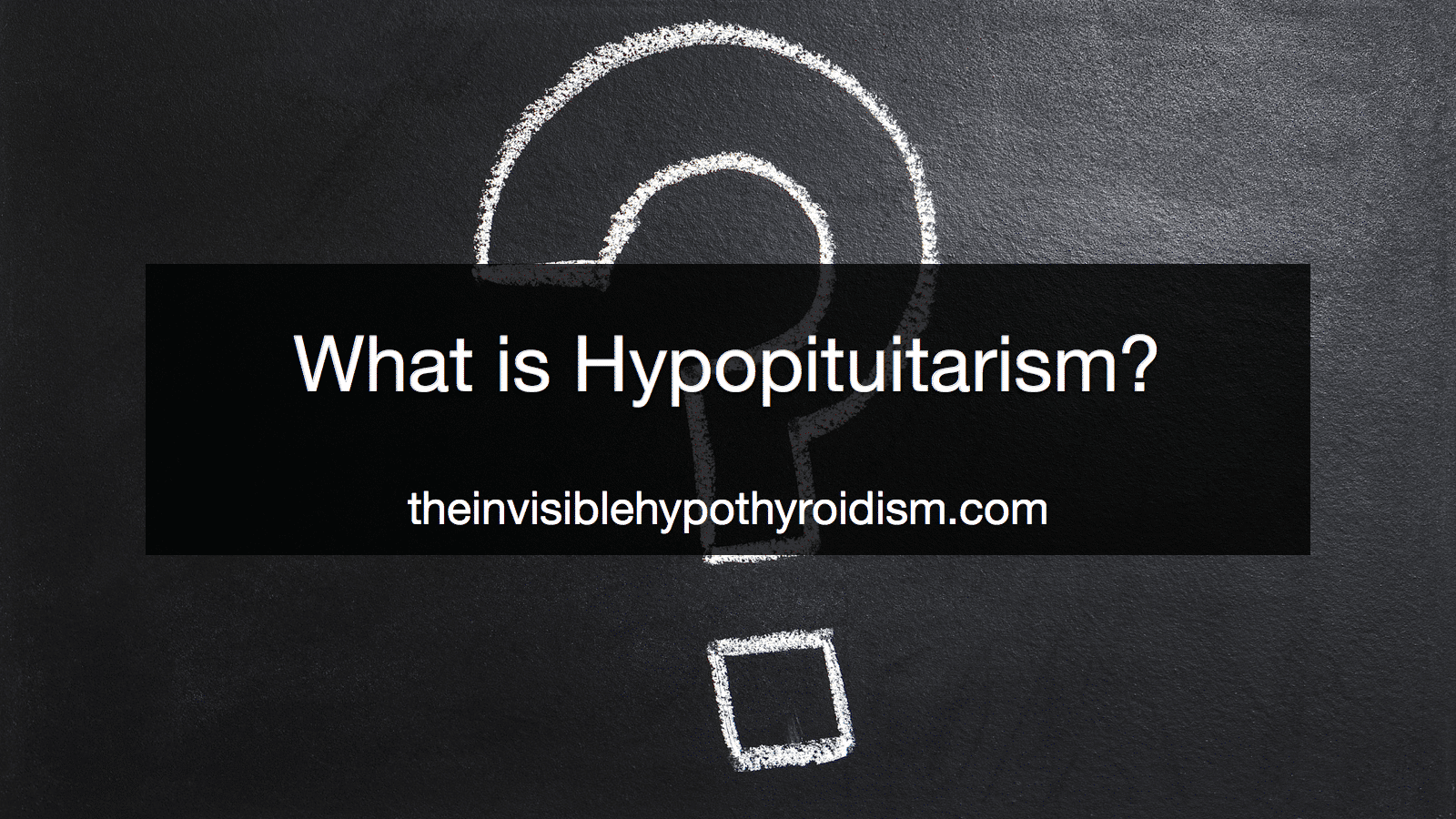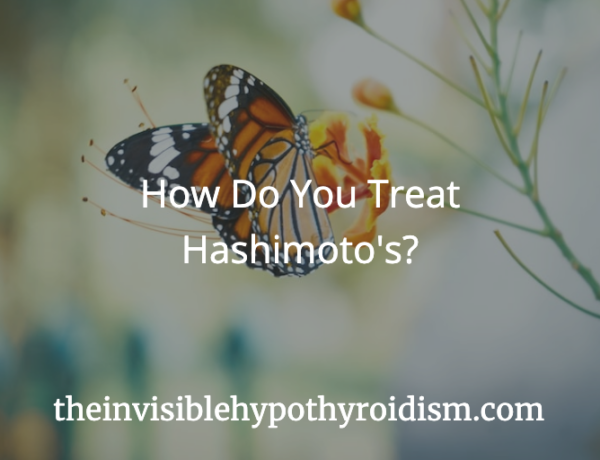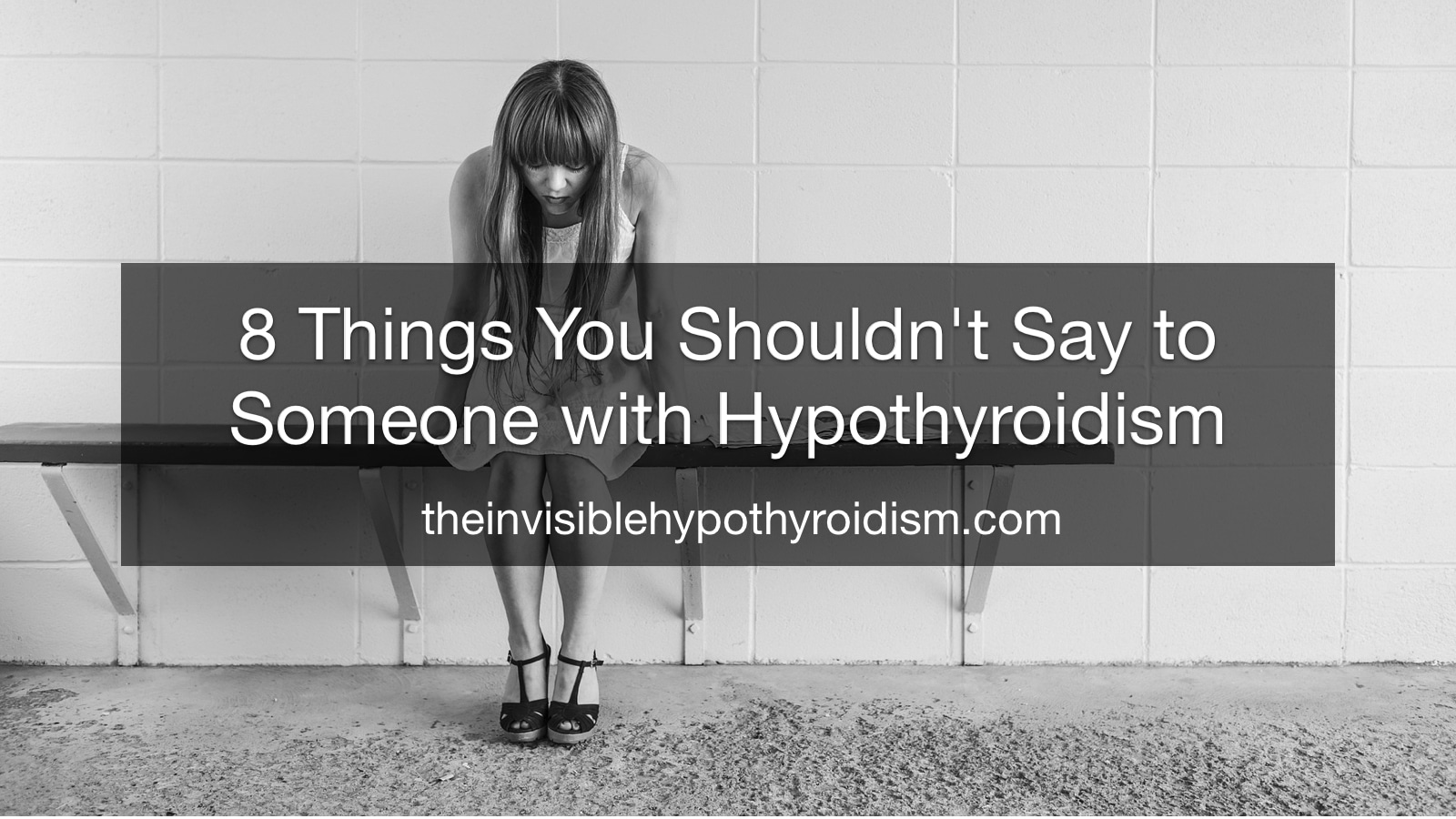Hypopituitarism is a condition in which the pituitary gland does not produce one or more of its hormones or not enough of them.
These are:
- Adrenocorticotropic hormone (ACTH) – a hormone that stimulates the adrenal glands to trigger the release of a hormone called cortisol, which regulates metabolism and blood pressure.
- TSH – a hormone that stimulates production and secretion of thyroid hormones from the thyroid gland.
- Follicle-stimulating hormone (FSH) and luteinising hormone (LH) are hormones that control sexual function. They are also known as gonadotropins or sex hormones and include oestrogen and testosterone.
- Growth hormone (GH) is a hormone that stimulates normal growth of bones and tissues.
- Prolactin is a hormone that stimulates milk production and female breast growth.
- Antidiuretic hormone (ADH) is a hormone that controls water loss by the kidneys.
Hypopituitarism can occur when you have a low TSH, but also a low Free T3 and sometimes low Free T4 too.
The usual hypothyroid symptoms are usually present in those with hypopituitary, such as fatigue, hair loss, depression, infertility, erectile dysfunction, constipation etc.
Other test result giveaways could be:
- Low ACTH and alpha MSH
- ACTH stimulation or ITT that doubles cortisol from a low base value
- Low GHRH
- Low TRH
- Low vasopressin
- Very low or below range prolactin
- Low oxytocin
- Low renin and aldosterone
The pituitary gland sits in the brain, and hypopituitarism essentially means that it isn’t working as well as it should be, leading to low thyroid hormone.
When the pituitary isn’t working well, this can cause a knock on effect and ultimately lead to the thyroid under-functioning, which causes hypothyroidism.
It also runs the adrenal glands and sex hormones. If the pituitary doesn’t produce enough TSH, thyroid hormone production can decrease, causing hypothyroidism. If the pituitary doesn’t produce enough ACTH, cortisol (and DHEA) can decrease, causing adrenal problems.
Think of it like this:
Hypothalamus -(sends signal to)-> Pituitary -(sends signal to)->Thyroid.
So, the hypothalamus and the pituitary gland work to ensure the thyroid functions correctly, releasing the hormones (T3 and T4) and the amounts of them that we need, in order to feel well. However, being hypothyroid, this doesn’t always happen for us. A problem can be the hypothalamus, the pituitary or the thyroid itself not doing its job in this sequence.
In primary hypothyroidism, your thyroid is being stimulated properly, but it isn’t producing enough thyroid hormones (T3 and T4). This means that the thyroid itself is the source of the problem. This is what most of us with hypothyroidism have.
In secondary hypothyroidism/tertiary hypothyroidism, the pituitary gland or hypothalamus isn’t stimulating the thyroid to produce enough hormones. In other words, the problem isn’t with the thyroid, but the pituitary or hypothalamus. This is a hypopituitary problem.
Hypopituitarism can be caused by a tumour on the pituitary gland, which is usually diagnosed via a scan of the brain, or it can be caused by even an injury to the head. A decreased release of hypothalamic hormones can also be the cause. For most cases though, it’s unknown what causes hypopituitarism. If you have a hypopituitary problem then this is usually for life.
You can click on the hyperlinks in the above post to learn more and see references to information given.






1 Comment
GoMedii
February 25, 2019 at 10:26 amUndiagnosed disease is a very dangerous situaion.